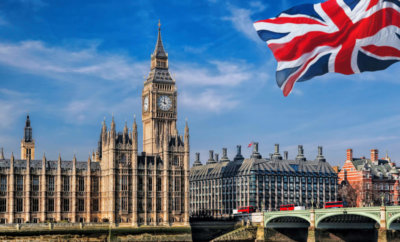Education
Foreign Students Should Remain in Net Migration Target, Says UK Committee

Representational Image
Photo: Bigstock
The Migration Advisory Committee has also said that post-study work related rules should be relaxed for foreign students in the United Kingdom.
In its much-awaited report on international students, the Migration Advisory Committee (MAC) in the United Kingdom has recommended that foreign students should be kept within the net migration target, which the government wants to keep at 100,000 per year. It has also rejected the idea of any special post-study work visa for these students.
Businesses and universities have called these recommendations disappointing, saying that the report has “missed important opportunities,” which could otherwise have proven reformatory for international education in the country, the Guardian reported.
However, MAC, the independent adviser of the British government on immigration-related matters, said that while the number of international students in the country could be increased, there is no practical way to separate students from other immigrants. It also recommended that a cap on international student numbers should not be introduced.
As per the report, over 750,000 international students come to the United Kingdom each year to pursue undergraduate as well as post-graduate courses. Students also come for private school and language courses, and other short courses, some of whom might move on to getting work visas.
“If there is a problem with students in the target, it is with the target itself rather than the inclusion of students in the target,” Prof. Alan Manning, the committee chairman, said in the report, according to the BBC.
However, accepting the importance of foreign students, the report has also recommended special post-study work visa for some of them. It acknowledged that international students actually nurture the British economy. The fee given by international students provides a “cross-subsidy” for native students, it said, the publication added.
“International students bring clear benefits to the whole of the UK,” it quoted Manning as saying.
He also underlined the role they play in enhancing the quality of research.
Indian and other non-European Union students contributed around £17.6 billion to the UK economy in 2015, the MAC report said. It also noted the decline in the number of Indian students in recent years and the adverse coverage in Indian media, according to the Hindustan Times.
So while on one hand the report has recommended that post-study work related norms be relaxed for some foreign students, which will help in increasing the number of students coming to the United Kingdom for studies, it recommends, on the other hand, that the number of foreign students be kept within the net migration target figures.
British businesses and universities, however, want foreign students to be removed from the net migration target. Critics of the MAC report are seeing it as an attempt to justify Prime Minister Theresa May’s strict stand on migration.
“While the UK continues to count international students as long-term migrants in its net migration target, there is a continued pressure to reduce their numbers. This adds to the perception that they are not welcome here,” Dame Janet Beer, president of Universities UK, an umbrella organization of British universities, told the Guardian.
“While the report recognizes the enormous contribution international students make to life in the UK, we are disappointed with its main recommendations,” she said, adding that the number of international students can grow only when the immigration system encourages talented students across the world to opt for the United Kingdom as their study destination.
“The MAC has recognized that international students are a boon to the economy, contributing £2.3 billion each year in the capital alone. With firms struggling to fill skills gaps and vacancies outstripping the people available to fill them, it is economic madness to send these talented youngsters packing as soon as their studies are over,” Jasmine Whitbread, Chief Executive of London First, a business group, told the Guardian.
Keeping the current scenario in mind, the government should not only bring post-study work visa back but also keep international students out of the net migration statistics, Whitbread added.
A spokeswoman for the British Chambers of Commerce stressed upon the need to scrap the limits and arbitrary numerical targets. “It’s one thing to control migration, but quite another to use arbitrary mechanisms that deny businesses, universities, and public sector employers the people they need to address immediate skills gaps,” she was quoted as saying.
The committee was expected to set out “meaningful recommendations” to help the UK recover market share, James Pitman from Destination for Education, a coalition of international education providers, said. “But maintaining the status quo will do nothing to restore Britain’s leadership in education exports. Our international competitors will continue to outperform us,” he added.
MAC has also recommended that the post-study leave-to-remain period for master’s students be increased from four to six months, and that the 12-month leave-to-remain period, that a PhD student gets after completion, should be automatically added to the original visa duration.
Recently, the Universities UK (UUK) also called for a post-study work visa for international students to make the country a popular study destination among them. The organization had said that students keep the post-study working possibility in mind while choosing the country for study.
The United Kingdom had this policy before the government scrapped it in 2012, severely impacting students from various countries, including India. As a result, the number of students from India going to Britain for higher studies declined by 26 percent between 2012-13 and 2016-17, according to a statement by UK’s Higher Education Statistics Agency.




You must be logged in to post a comment Login